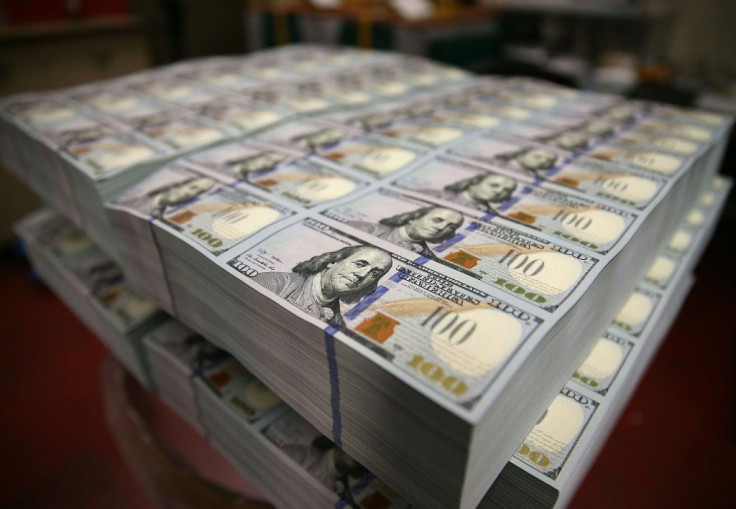US Deficit Seen Ballooning Over $1 Tn This Year: CBO

The US budget deficit is expected to swell this year to over $1 trillion and remain above that level for a decade as government debt balloons, the independent Congressional Budget Office said Tuesday.
Because of the large deficits, CBO said the US debt will grow to 98 percent of the size of the American economy by 2030 -- the highest share since 1946 -- and continue to rise "far higher than it has ever been" to 180 percent of GDP by 2050.
Following President Donald Trump's massive tax cut package at the end of 2017, the deficit has been marching higher, despite administration promises that reducing taxes for corporations and the wealthy would pay for themselves.
The budget gap came in just under the $1 trillion mark last year but is expected to average $1.3 trillion from 2021 through the end of the decade, according to the CBO's latest forecasts.
While low US interest rates have reduced the cost of the debt, which helps hold down projected deficits, the CBO said "a combination of recent legislation and other changes increased them."
"If current laws governing taxes and spending generally remained unchanged, federal deficits would continue to be large by historical standards from 2020 through 2030 and beyond," the budget office said said.
The agency forecast US economic growth will be 2.2 percent this year, adjusted for inflation, "largely because of continued strength in consumer spending and a rebound in business fixed investment."
GDP growth is expected to average 1.7 percent over the coming decade, according to the updated forecasts.
Trump is counting on having a strong economy as a selling point to win a second term in the November election, even as he endures an impeachment trial that could remove him from office.
But the multi-front trade wars Trump has pursued have crimped investment and left the US economy producing solid but not stellar growth that's less than what's needed to reduce deficits.
Treasury Secretary Steven Mnuchin continues to reject claims the 2017 tax cuts have caused runaway budget deficits and insists they would pay for themselves ultimately, although he acknowledged that to get there spending will have to be reined in.
"But there's no question we need to slow down the rate of growth of government spending because we can't sustain these deficits growing at these levels," he said last week, while also promising more tax cuts, this time for middle-class Americans.
Kentucky Congressman John Yarmuth, chairman of the House Budget Committee, said Tuesday the CBO forecast "confirms that President Trump's economic policies did not create a sustained boost for the economy like he has claimed."
"The Republican 2017 tax law blew a $1.9 trillion hole in the debt and has exacerbated our long-term fiscal challenge," Yarmuth said in a statement.
Economists have long warned that policymakers should take advantage of growing GDP to cut the deficit, to ensure there are funds available to provide help during the next downturn.
Maya MacGuineas, president of the Committee for a Responsible Federal Budget, warned that officials can no longer procrastinate, especially as interest on debt makes up the fastest growing part of the deficit.
"Over half of the deficit is due to the choice of policymakers to borrow to fund recent tax cuts and spending increases. CBO's report confirms that not only are we in uncharted waters, but that we are also leaving future generations with an incredible burden," she said in a statement.
© Copyright AFP 2024. All rights reserved.




















